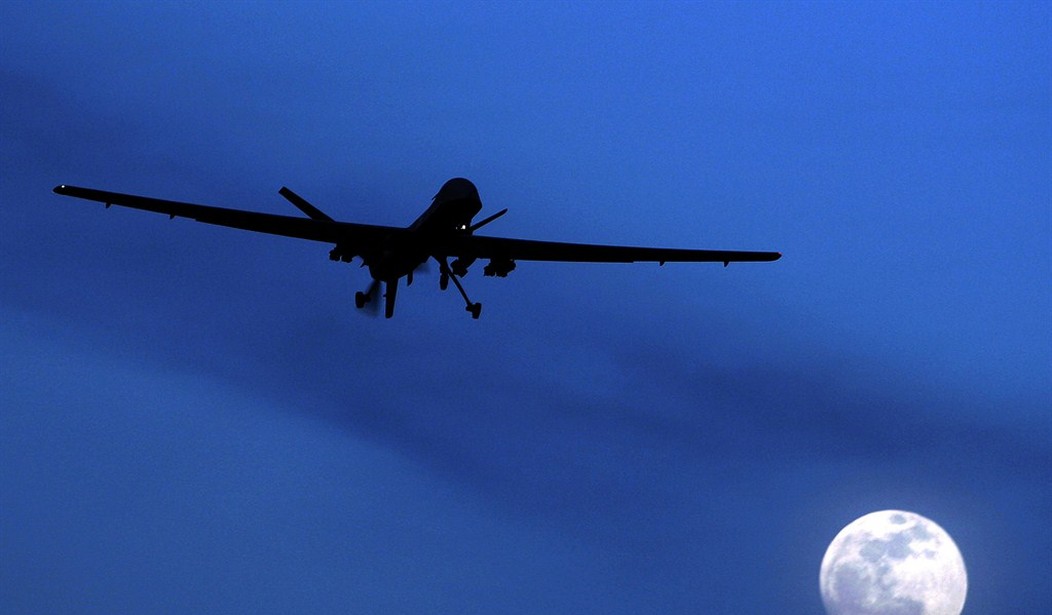The new thriller Eye in the Sky has a relatively small focus but raises enormous questions about warfare today. Written by Guy Hibbert, the 104-minute feature raises questions about drone warfare and the bureaucratic boundaries and legal ramifications that — rightly or wrongly — hinder the military’s ability to freely engage in this new type of combat. The drama leaves viewers not with answers but with legitimate questions about the ethics and the undeniable repercussions of drone strikes.
The characters here are separated by continents, ranks and professions but they are all keeping an eye on one location: a small marketplace in Kenya.
In an English military command center, British Colonel Katherine Powell (Helen Mirren) leads an operation to capture several high-profile extremists who have been spotted near this marketplace. In a darkened room, she stands in control as she watches as her possible targets travel on a large screen in front of her. The mission is to capture the targets and in a well-lit London conference room, Lieutenant General Frank Benson (Alan Rickman, in one of his last performances) watches the situation unfold, surrounded by representatives of the country’s government.
In Nevada, a pilot named Steve Watts (Aaron Paul) commands the drone above the Kenyan marketplace, which provides surveillance of the area. On the ground in Kenya is an operative named Jama Farah (Barkhad Abdi), who is sent in to provide detailed surveillance of the building where several major high-profile terrorists stand feet away from a room that is packed with suicide vests.
These are the targets on the ground. These are the players who could potentially use those bombs to murder dozens of people in the marketplace.
With such a present threat, the order to capture them is tossed and the discussion moves quickly into whether or not these terrorists should be targeted by a missile strike even though they stand feet away from a busy marketplace, where a young girl is selling bread to the locals.
Recommended
Despite the fact that most of the film is a discussion about warfare — rather than battle sequences themselves — director Gavin Hood is able to ratchet up the tension by hinting at the danger that these terrorists pose. He also uses the Oscar-nominated Abdi effectively by keeping Farah near the marketplace for much of the film where he is in danger of being discovered and even killed.
Much of the film is a debate about the ethics of drone strikes — and the difficulty in getting a strike approved by the political leaders who would be held responsible if the operation fails — and the cast does a stellar job in bringing different perspectives to life. As Colonel Powell, Mirren brings an undeniable intensity to the film that shows both a seriousness of purpose and an open proclivity to bullying. Yet, even when Powell is commanding an underling to lie, it’s never done maliciously. She has a job to do and doesn’t want anything to stand in her way.
Rickman, too, does an excellent job as a strong-willed military official who is surrounded by caustic politicians. The discussions in that conference room add a degree of pragmatic depth to the film that reveals a political hesitancy that is all too real. When the Attorney General argues that if the terrorist organization “kills 80 people, we win the propaganda war. If we kill one child, they do,” such a sentiment is shocking not because it feels out of place but because it legitimately raises questions about the political posturing of officials who know the dangers of botched mission.
After his stridency on the subject of drone warfare is criticized by a British politician, Benson offers one of the movie’s truest sentiments by noting “Never tell a soldier that he does not know the cost of war.”
Director Gavin Hood, who previously helmed the provocative Ender’s Game(2013), manages this multi-faceted production well, compellingly alternating between locations without losing his focus on the ground in Kenya. At times, the story does drag on a little much but the film’s methodical plot is never in doubt.
When the story’s end comes and some of the players — who have been confined to closed, dark rooms for much of the proceedings— finally enter more spacious spaces, no easy solutions have been revealed but more light has been spread on the difficulties of these decisions and that’s an achievement that the filmmakers here should be proud of.

























Join the conversation as a VIP Member